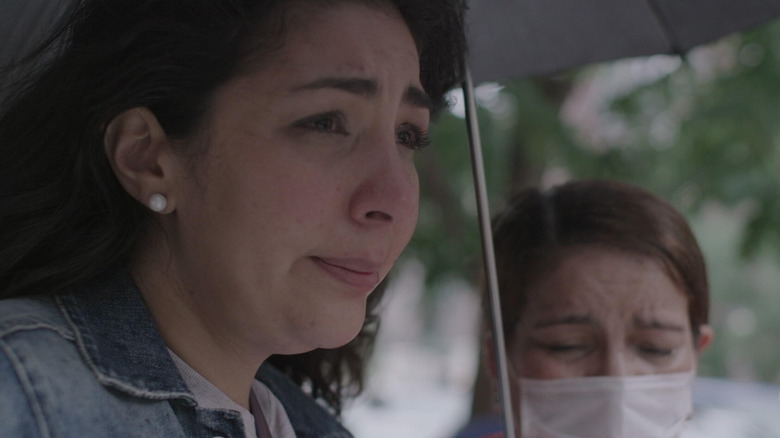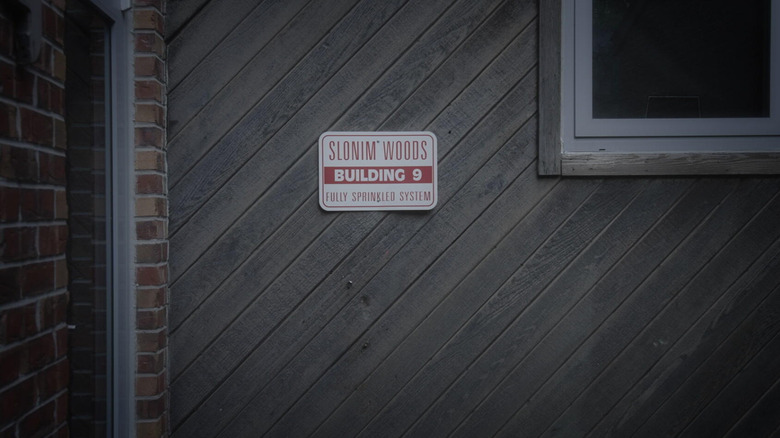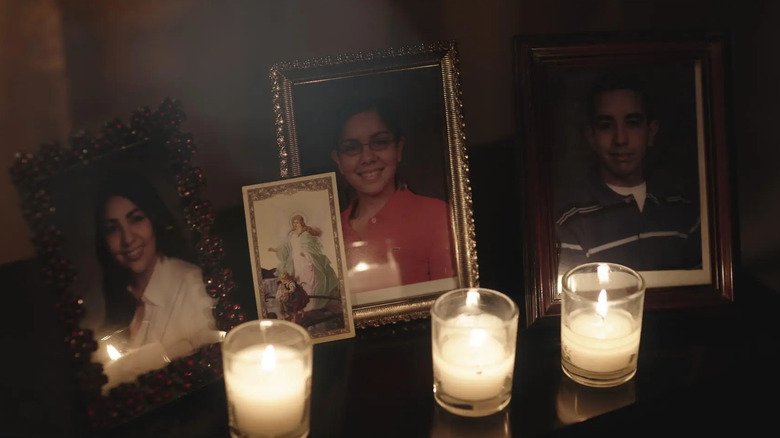The Daily Stream: Stolen Youth: Inside The Cult At Sarah Lawrence Sets A New Standard For True Crime Media
(Welcome to The Daily Stream, an ongoing series in which the /Film team shares what they've been watching, why it's worth checking out, and where you can stream it.)
The Series: "Stolen Youth: Inside the Cult at Sarah Lawrence"
Where You Can Stream It: Hulu
The Pitch: True crime media is something I am both engaged in and heavily critical of. If you have been reading my work here at /Film, you'll come to see that it's become a beat of mine, usually highlighting the negative aspects of the subgenre. Despite all the exploitation that the subgenre is known for, I believe that, like all other genres, it has the ability to tell empowering and enlightening stories of survival in an empathetic way. This is why it's unfortunate that so many creatives choose the lazier approach by favoring a more shocking and insensitive route.
This is probably why I initially had low expectations of Hulu's three-part docuseries "Stolen Youth: Inside the Cult at Sarah Lawrence." The series, directed by Oscar-nominated documentarian Zachary Heinzerling, put a spotlight on the 10-year-long abuses enacted by Lawrence Ray onto several of his daughter Talia's college roommates. With a topic as serious as sex cults, it felt especially easy to make this docuseries an exploitative disaster with no real regard for Ray's victims. However, that's not the case, as it becomes one of the few pieces of true crime media to truly feel as if it was made to give the victims true peace.
Why it's essential viewing
Where so many pieces of true crime media fall flat is who they allow to control the narrative. Since a lot of true crime media focuses on murders, it's impossible to get the victims' side of the story. However, when a crime involves victims that are still alive, it is a deliberate choice to either honor the requests of these victims or exploit them for shock and awe. That is why there are rarely dramatizations or docuseries that solely focus on the anecdotes of a criminal's victims — these stories are always guided along by detectives, psychologists, or journalists.
"Stolen Youth" rarely features the law enforcement officers and journalists that helped bring its harrowing story to a conclusion. Instead, the vast majority of the three-part series is narrated by Ray's victims, either those he directly recruited or those who refused to fall for his tricks. The survivors recall their entire time with Ray, from falling for his lectures on self-improvement to finally escaping the confined hubs he physically and mentally abused them in.
Plenty of tears are shed and shocking twists are revealed as the story unfolds. However, the refusal of the series to give Ray any sort of leeway through glamorization is something that every piece of true crime media moving forward needs to take note of. "Stolen Youth" allows Ray's victims the space to tell their stories and forge their own paths to healing, even if that road is a difficult one.
We're fated to pretend
This victim-centric approach to "Stolen Youth" is played out tragically and scarily throughout the first two episodes, but it is its third and final one, "Larryland," that is must-see television. The episode primarily centers around Ray's two remaining victims, Isabella and Felicia, as they react to his arrest in 2020. Periodically throughout the production, the two check in with Heinzerling with updates. While Isabella still maintains Ray's innocence, Felicia eventually began breaking away from the two of them, paving a path for her eventual recovery. She wishes to reunite with her family, including her siblings and fellow victims Santos and Yalitza, and watching these feelings grow over the course of the episode is shattering.
There is no judgment laid upon Isabella for still believing in Ray, nor is Felicia's self-rediscovery framed as a triumphant tale. "Stolen Youth" is nuanced enough to understand the complexities of cult brainwashing, and that nobody can ever be fully healed or saved from it. This is precisely why it means so much that the docuseries was narrated solely by those directly affected by Ray's manipulation. By giving them a palpable voice, they are humanized in a way that news reports and online reaction videos fail to do. They have not fallen casualty to the spectacle that so many innocent victims of abusers and killers glamorized by the true crime subgenre have. "Stolen Youth: Inside the Cult at Sarah Lawrence" helps these survivors reclaim the humanity that both he and the vicious true crime landscape threatened to destroy.


